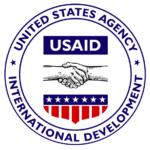According to President Donald Trump, all steel and aluminum entering the US will be subject to a 25% import tariff. One of the US’s biggest trading partners for steel and aluminum, Canada, is predicted to be most affected by the action. The Trump Tariffs decision is expected to change the nature of international trade.
Although he did not say which countries would be singled out or whether any exceptions would be granted, Trump also alluded to further reciprocal tariffs on any nations that levy import levies on American goods.
Trump said, “If they charge us, we charge them,” on the way to Sunday’s Super Bowl in New Orleans from his Mar-a-Lago property in Florida.
What Impact Will This Have on Mexico and Canada?
Two of the United States’ most important trading partners for steel are Canada and Mexico. The US’s top supplier of aluminum is Canada in particular.
Trump levied 25% tariffs on steel imports and 10% tariffs on aluminum imports from the EU, Canada, and Mexico during his first term in office. However, an agreement was later made to abolish those duties with Canada and Mexico, but EU levies remained in place until 2021.
Trump reaffirmed his unwavering position while speaking on Air Force One, saying, “Any steel coming into the United States is going to have a 25% tariff.”
The announcement drew criticism from Ontario Premier Doug Ford, who charged Trump with “shifting goalposts and constant chaos, putting our economy at risk.” Ontario is home to a large portion of Canada’s steel output.
How Has the Market Responded?
Global markets have already been impacted by Trump’s remarks, especially in South Korea, a significant supplier of steel to the US. Following the revelation, South Korean steel and automakers’ stocks plummeted.
Hyundai Steel’s stock fell 2.9%, and the steel behemoth POSCO Holdings’ stock fell as much as 3.6%. Early morning trading also saw a 3.6% decline in Kia Corporation’s stock price.
A New Trade War, Is It?
This action represents yet another step forward in Trump’s tariff agenda, which has already prompted China to take reciprocal action. Trump still views tariffs as a key component of his economic strategy because he thinks they will safeguard employment, grow the US economy, and raise taxes.
Trump threatened to impose 25% duties on imports from Canada and Mexico earlier this month, but after consulting with the leaders of both countries, he postponed the decision for 30 days, until early March.
Beijing retaliated with its own set of tariffs that went into effect on Monday after Trump announced fresh 10% tariffs on all Chinese imports entering the US.
What Comes After This?
According to Trump, additional reciprocal tariffs will be announced “Tuesday or Wednesday,” and they will go into effect right away.
“The ones that are taking advantage of the United States, we’re going to have reciprocal [tariffs],” he said. “It’ll be great for everybody, including other countries.”
Trump renamed the Gulf of Mexico, but why?
A proclamation declaring February 9th to be “Gulf of America Day,” in recognition of his directive to rename the Gulf of Mexico, was signed by Trump while he was in New Orleans.
Mexico has protested the action, claiming that the US is not allowed to officially alter the Gulf’s name. A nation’s sovereign territory is limited to 12 nautical miles from its shore, according UN criteria.
Has Trump Communicated with Putin?
Trump remained evasive when asked if he had spoken with Russian President Vladimir Putin.
“I don’t want to talk about it, and if we are talking, I don’t want to tell you about the conversations too early, but I do believe we’re making progress.”
By saying, “I would imagine I would be meeting with Putin at the right time… at the appropriate time,” Trump alluded to a possible future meeting with Putin.
Is Trump Interested in Taking Over Gaza and Canada?
Trump surprised everyone by reaffirming his view that the United States could occupy Gaza and Canada. He declared his “commitment to buying and owning Gaza” and implied that Canada would do better as the “51st state.”
His words have stirred controversy, with detractors condemning them as unrealistic and offensive.
Global trade ties are still being shaped by the Trump tariffs, which worries corporate executives and allies around the world. A lot of people are keeping a close eye on how these new trade restrictions will affect the economy.








